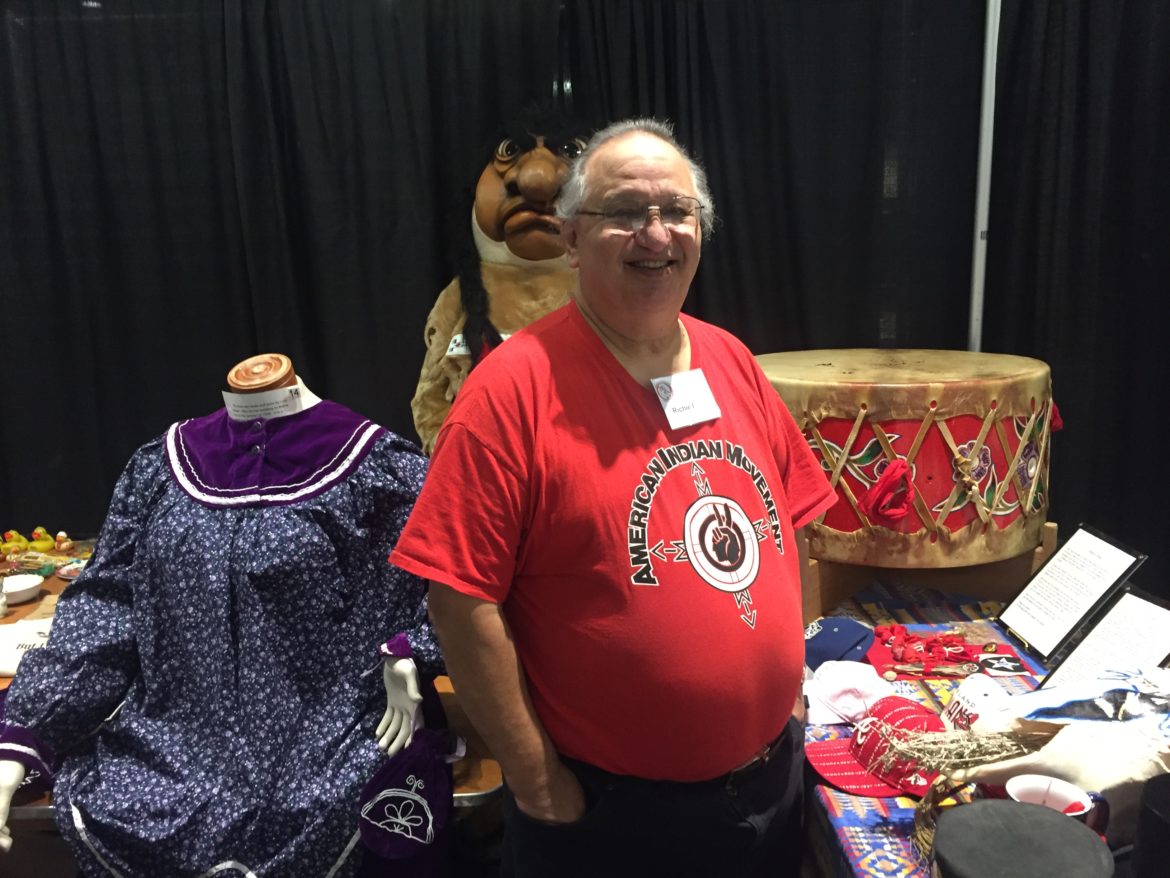Curator for the “Bittersweet Winds” exhibit Richie Plass stands around some of his exhibits’ memorabilia and art. Plass created the exhibit to educate people about offensive American memorabilia, especially the racially-offensive usage of Native-Americans as team mascots. Photo by Jordan Rhym.
The ODYSSEY Media Group will provide viewers with stylized profiles that center on people in the Athens community telling their own stories.
By JORDAN RHYM – Print Copy Editor
Curator for the “Bittersweet Winds” exhibit Richie Plass explains the purpose of his exhibit.
Curator for the “Bittersweet Winds” exhibit Richie Plass sits surrounded by his own man-made bubble.
The bubble, which varies in decorations from pictures of him and his family living on the Menominee Indian Reservation in Wisconsin to offensive Indian mascotry such as Washington Redskin merchandise, is an exhibit that not only he, but his peers have spent 13 years filling with Native-American oriented memorabilia that strives to educate people on what is acceptable and what is offensive for not only his culture but other cultures as well.
The exhibit, “Bittersweet Winds”, is a collection of the good, the bad and the ugly of how Native Americans and other groups of people have been portrayed in America’s media and marketing. The touring exhibit has travelled through 13 states and has continuously collected new elements for the exhibit with each stop.
“When I started it, I had three little boxes of stuff and I never anticipated or planned for it to get the way it is,” Plass said.
He strives to answer instead of preach.
“I call the exhibit visual education. You’re gonna see some really neat stuff and culturally relative things and you’re gonna see some really shitty stuff,” Plass said. “I’m not gonna sit here and tell you how to think.”
A lot of the exhibit showcases different examples of racism within sport mascotry.
While sitting behind a table covered in knick knacks like Cleveland Indian bobble heads and sunglasses, there is a poster that easily catches visitors’ eyes. The poster is lined from top to bottom with “Jersey Jews”, “N.Y Negos”, “Denver Degros” and “Alabama Blackskins” pennants along with many more.
Plass wants visitors to question the history and the bigotry portrayed in his exhibition so that people can understand the pain and harm that comes with misrepresentation of cultures.
“I’m gonna sit here and I’m gonna answer your questions because I lived it, I still live it, I still deal with racism and stereotyping,” Plass said. “Don’t be afraid to ask a question. Don’t be afraid to make a comment. Just get ready to for the answer.”
